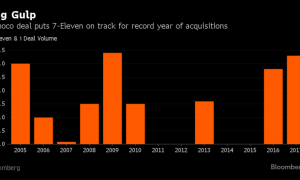
After cooperating for nearly a year with the New York attorney general's office, ExxonMobil is now suing to block the state's sweeping subpoena that seeks records dealing with the company's climate research going back nearly 40 years.
The oil giant filed a motion Monday in Texas federal court asking to amend its pending lawsuit against Massachusetts Attorney General Maura Healey to include New York Attorney General Eric Schneiderman. The litigation seeks to halt their investigations, which the company calls a conspiracy to further their political agenda.
"The improper political bias that inspired the New York and Massachusetts investigations disqualifies Attorneys General Schneiderman and Healey from serving as the disinterested prosecutors required by the Constitution," according to an unsigned news release issued by Exxon announcing the new litigation.
Eric Soufer, a spokesman for Schneiderman, called Exxon's motion "stunt litigation" that has no merit and will not stop New York's investigation.
"As we've seen for months, Exxon will do everything in its power to distract, delay, and avoid any investigation into its actions, which may have violated state securities and consumer fraud laws," he said.
Exxon's motion comes less than a week after the federal judge in Texas dealt a setback to Healey's investigation by demanding she turn over documents that might show she has prejudged Exxon's fate based on her political views.
In attacking the New York investigation, Exxon called Schneiderman's probe "politically charged."
"As the investigation unfolded, events further suggested that Attorney General Schneiderman's inquiry had more to do with politics than law enforcement," according to the motion.
In the year since New York issued an 18-page subpoena for documents related to Exxon's research into the causes and effects of climate change, the company said it has turned over more than 1 million pages of documents.
But Exxon now says it believes Schneiderman "has no intention of fairly evaluating ExxonMobil's substantial production of documents," according to the motion.
The company cites what it calls a change in tactics by Schneiderman.
"Less than a month ago, and well after ExxonMobil commenced this action, the Attorney General's spokesman stated that the Company's 'historic climate change research' was no longer 'the focus of this investigation,'" according to the motion.
"Rather than close his investigation, Attorney General Schneiderman shifted focus. He directed ExxonMobil to produce documents concerning its estimation of oil and gas reserves."
That investigative avenue would be geared toward New York's consumer laws that safeguards against financial fraud. Schneiderman has said his investigation rests in large part on how the company informed investors about financial risks based on the impact to the company's oil reserves—estimates based on the potential of future regulations designed to reduce greenhouse gas emissions from the burning of fossil fuels.
Exxon argues in its motion that Schneiderman's probe is "particularly egregious" because Securities and Exchange Commission regulations prohibit companies from considering the impact of future regulations when estimating reserves.
"The theory that the Attorney General has promoted to media outlets requires that ExxonMobil adopt his assumptions about the likelihood of possible future climate change regulations and then incorporate those assumptions into its estimation of proved reserves and its determination of whether an asset has been impaired," according to the motion. "But that theory of 'massive securities fraud' cannot be reconciled with SEC rules and regulations."
Despite a recent report that the SEC itself is looking into Exxon's climate risk disclosures, the agency would not confirm or deny the existence of an investigation.
As it has for more than six months, Exxon decried Schneiderman's role in forming a coalition of attorneys general that vowed to hold fossil fuel companies accountable for any misconduct associated with climate change.
"The Attorney General pledged that the coalition would 'deal with the problem of climate change' by using law enforcement powers 'creatively' and 'aggressively' to force ExxonMobil and other energy companies to support the coalition's preferred policy responses to climate change," according to the motion.
As the case in Texas continues to heat up, Schneiderman's office filed its own motion Friday in New York State court to compel the company's independent auditor to comply with a subpoena.
Since being served the subpoena in August, Schneiderman said PricewaterhouseCoopers has declined to turn over critical documents, citing Exxon's assertion of an accountant-client privilege. Caroline Nolan, a spokeswoman for PricewaterhouseCoopers, said the company has cooperated with this investigation since receiving the subpoena. "The firm has responded promptly to the request and will continue to do so," she said.
The subpoena hits at the question by New York investigators of whether Exxon has had longstanding knowledge of the risks associated with climate change, including the risks posed to its business by climate change-related policies and regulations. That question is a key element in determining whether the company violated the state's consumer fraud statutes.
"Exxon's publicly-filed reports state that in the course of its audits of Exxon, PwC examines whether the disclosures in Exxon's financial statements are supported by evidence and issues opinions as to whether Exxon's financial statements fairly and accurately represent its financial position," according to the motion to require disclosure of records connected with the company's assessment of the risk of climate change.
"Notwithstanding its apparent knowledge of climate change-related risks, Exxon appears to have downplayed those risks in public statements."
Click here to view original web page at insideclimatenews.org












